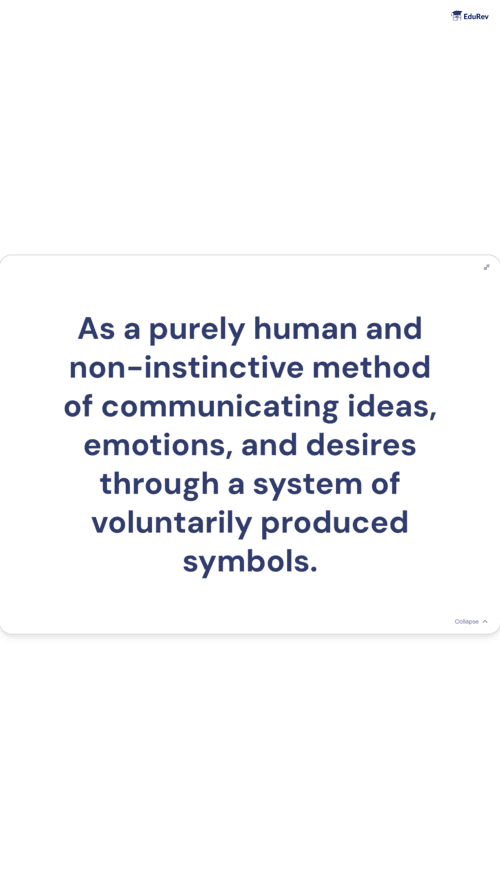 Unlock all Flashcards with EduRev Infinity Plan Starting from @ ₹99 only
|
CTET & State TET Exam > English Language & Pedagogy for CTET & TET Exams > Flashcards: Principles of Language
|
47 videos|208 docs|47 tests
|
FAQs on Flashcards: Principles of Language Flashcard - English Language & Pedagogy for CTET & TET Exams - CTET & State TET
| 1. What are the key principles of language development? |  |
Ans. The key principles of language development include the idea that language acquisition is a natural process, the importance of social interaction in learning, and the role of cognitive development in understanding language. Additionally, exposure to language at an early age is crucial, as it helps in building vocabulary and comprehension skills.
| 2. How does the environment influence language acquisition? |  |
Ans. The environment plays a significant role in language acquisition by providing the necessary exposure to language through interactions with caregivers and peers. A rich linguistic environment, characterized by varied vocabulary, conversations, and encouragement to communicate, enhances a child's ability to learn and use language effectively.
| 3. What is the difference between language acquisition and language learning? |  |
Ans. Language acquisition is the subconscious process of picking up a language naturally, often seen in young children as they learn to speak through interaction. In contrast, language learning is a more conscious process, typically involving formal instruction and the study of grammar, vocabulary, and usage, often seen in older learners or in second language contexts.
| 4. Why is social interaction important for language development? |  |
Ans. Social interaction is crucial for language development because it provides opportunities for practice, feedback, and reinforcement. Engaging in conversations helps individuals to understand context, use language in varied situations, and develop pragmatic skills, which are essential for effective communication.
| 5. How do cognitive processes affect language use? |  |
Ans. Cognitive processes such as memory, attention, and problem-solving skills significantly affect language use. These processes enable individuals to understand and produce language, retrieve vocabulary, construct sentences, and engage in complex communication. Cognitive development, therefore, is closely linked to the ability to learn and use language proficiently.
Related Searches







































